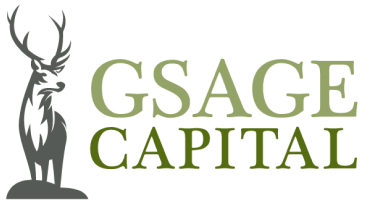Conventional Business Loans
Whether necessary for purchasing new equipment, covering business related expenses, providing working capital, or offering short-term funding, business owners are often faced with the need for a loan.
There are several funding options available, each with their own unique characteristics. It is imperative all viable options are examined to ensure that the best loan is secured to address the specific needs of the business. Read on for an inside look at conventional business loans, how they differ from SBA loans and who can benefit the most from this source of working capital.
What is a conventional business loan?
Launching, or even maintaining, a business can be a costly undertaking. Unforeseen circumstances, such as a worldwide pandemic that causes supply and labor shortages, add to the complexity of business ownership. If you are looking to embark on a new business, or grow a current one, taking out a conventional business loan may be your best solution.
Most often, conventional business loans are can be secured from a bank, credit union and financial institutions, such as GSAGE Capital. In basic terms, a lump sum of money is paid to the business with re-payment of the loan occurring over a fixed period of time. Depending on the business and lender, interest rates and fees will vary. Conventional business loans are regularly used for business acquisitions, equipment loans, debt consolidation, property loans and working capital needs.
Generally speaking, a conventional business loan is less costly and time consuming when compared to other funding methods. However, businesses must meet eligibility requirements in order to qualify for a conventional loan. Most often, conventional business loans are reserved for licensed business owners who demonstrate favorable financials, strong liquidity and possess a good credit score of 650 and above.
Each lender will manage their conventional business loan program differently. Yet, across the board, this type of funding can be used to finance multiple businesses, with low fixed interest rates, for up to 10-year terms.
Conventional Business Loans vs SBA Loans
You already know that operating a business comes with plenty of decisions. One of the biggest choices you may be faced with is the type of financing to secure for your small business. As outlined above, conventional business loans come with eligibility requirements that may exclude newer businesses with less established credit history.
An alternative to a conventional business loan is the Small Business Administration (SBA) loan. SBA loans are designed for recently launched, smaller businesses that need to secure a smaller loan. As with conventional business loans, SBA loans can be used to establish lines of credit, for working capital and to address equipment or property loans. Nevertheless, there are several key differences between the two types of funding.
SBA loans are backed by the government, which means they take longer to obtain and require more paperwork than a conventional business loan. There is a lengthy documentation process and government backed regulatory rules in place for SBA loans. Unlike conventional business loans, SBA loan approval can take up to 120 days or longer. Another major difference between these funding methods are that SBA loans usually have lower interest rates and longer repayment terms.
There are a number of advantages and disadvantages for both SBA and conventional business loans. It is vitally important to select an experienced lender, such as GSAGE Capital, to help guide you toward the loan that works best for your specific business.
When You Should Consider a Conventional Business Loan
If you believe your business meets the requirements for securing a conventional business loan, this type of funding may be a perfect fit for your needs. You’ll save the time and hassle of dealing with government mandated documentation. If eligible, you can expect to secure between $250,000 and $5 million, with low fixed interest rates, available cash-outs and long-term financing options.
While specific loan programs and financial lenders may differ, there are a few general questions you should be asking yourself if you’re contemplating a conventional business loan. First, it’s important to know your credit score, determine the loan amount you need and how much time you have to work on securing the loan. Next, decide what type of collateral you’re able to offer and how much you are comfortable putting up. After considering these factors, we highly recommend you seek professional guidance to determine if your business is eligible for a conventional loan.
The experienced financial consultants at GSAGE Capital are available to answer any questions you may have. We work tirelessly assisting small businesses, like yours, achieve financial success.
Our application process only takes a few minutes, with no obligation or risk to your credit profile. Begin the process today and one of our representatives will be in touch to further discuss your business need
